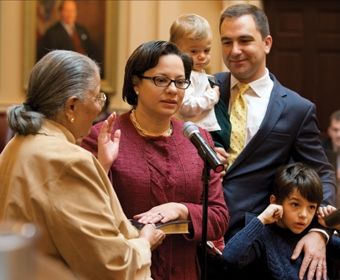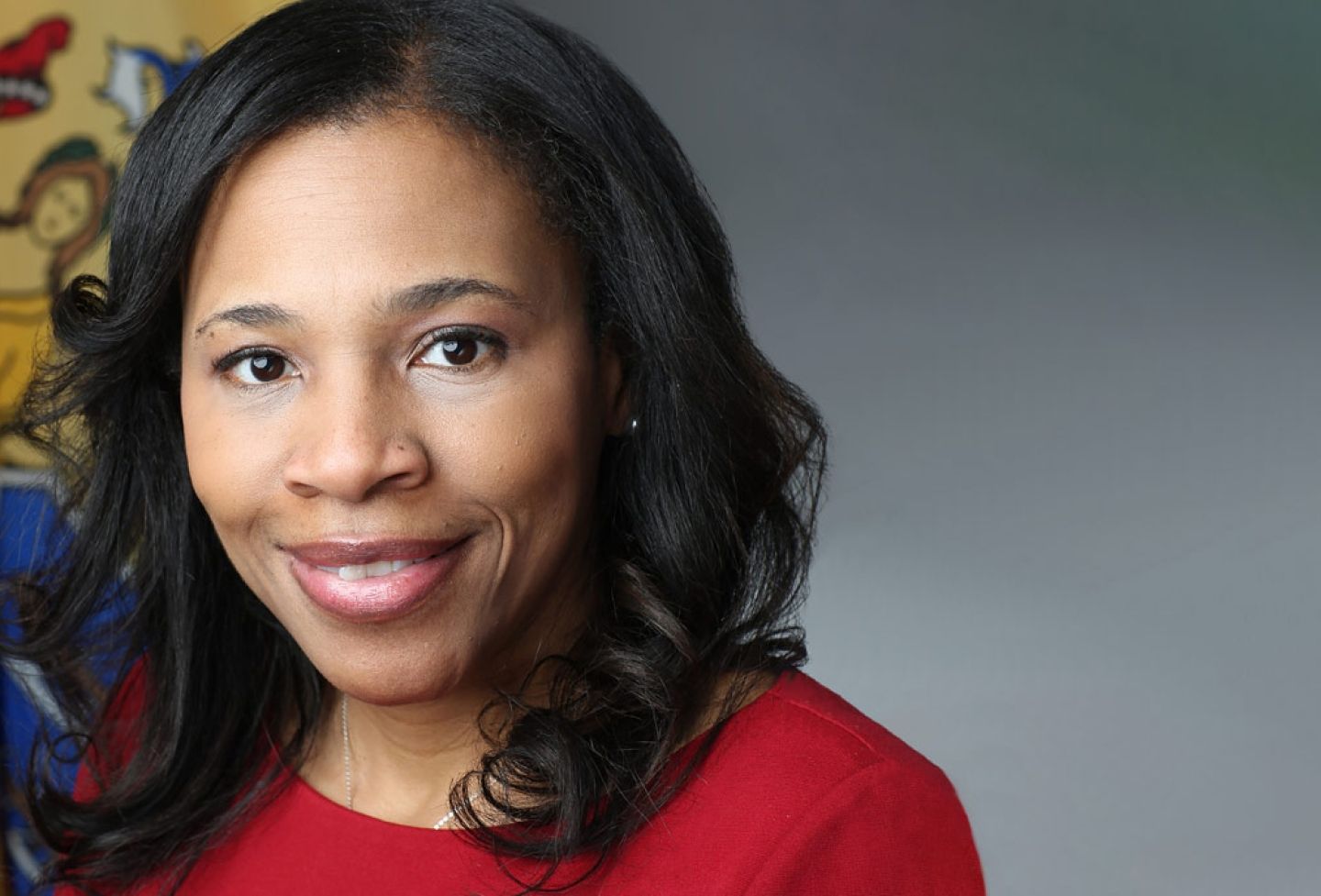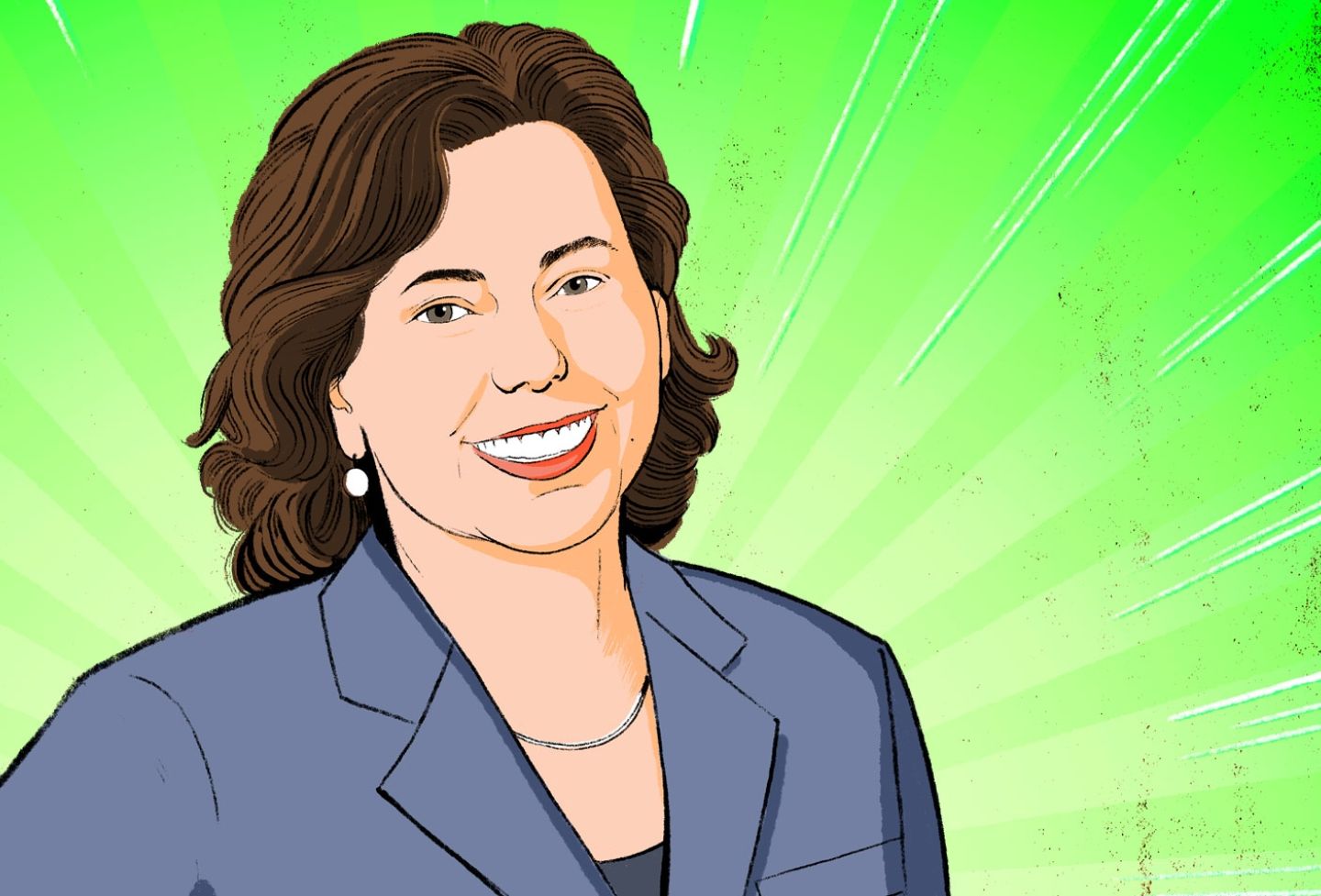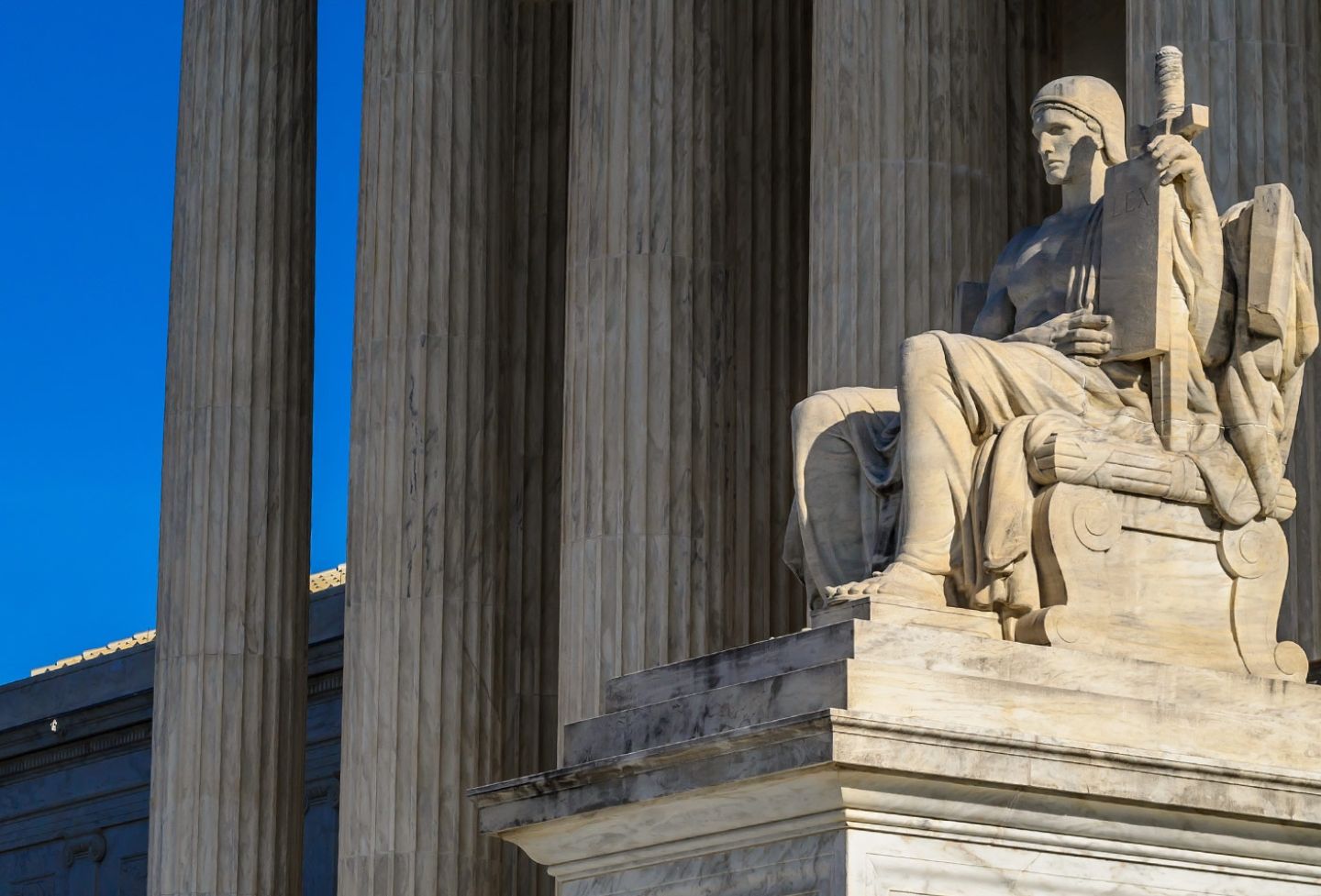Jennifer McClellan served in the Virginia House of Delegates from 2006-17, representing the 71st District, after which she ran for the state Senate seat of A. Donald McEachin ’86, who won election to the U.S. House of Representatives.
Rumor has it that McClellan may run for governor; if she does, and wins, she would be the first woman to serve in that role, and the first black female governor in the nation.
Why did you want to become a lawyer?
My grandfather was a lawyer, my dad’s dad. He was a real estate and civil rights attorney in Nashville in the ’40s through the ’60s — really until he died in the ’80s. And I got interested in government and politics really as a middle schooler learning about history. The more I read, the more I felt government is an important force for change. Lawyers have been integral to that, from the legislative process to the use of the legal system.
What was your time in law school like?
My time there was a little unique. I was president of the Virginia Young Democrats my entire time in law school. I had been drafted to run the summer before school started. And so especially that first year, when a lot of people end up playing softball and mainly stick around law school, I spent my weekends traveling all around the state in the fall doing campaign invasions.
I got to know some of the undergrad students very well through the university Democrats. And from that I actually got involved with student council. A friend of mine who was elected president of student council appointed me to be on the appropriations committee that decides how activity fees are spent.
I did have the traditional experience of being on the Virginia Law Review — I was the notes development editor. I was involved with the Black Law Students Association, I was involved with Law Democrats, so in that way it was very traditional, but my extracurricular time was really spent off campus doing campaign work across the state and in the city, too.
What made you finally take the plunge and run for public office?
It was always something I had in the back of my mind that maybe one day I would do after I got married and had kids and made partner at Hunton & Williams.
But I left Hunton in 2002 to go in-house at Verizon, and was thinking about it enough that when I was recruited I said, look, this might be something I may want to do one day. Is this something you’d be open to? They said yes. And then in 2005, Viola Baskerville decided to run for lieutenant governor instead of running for reelection to her House seat, and I lived in that district.
A lot of my friends started saying, are you going to run for this? You should run for this. And I was really at kind of a crossroads where I was trying to decide what’s my path. The more I thought about it, I thought I really love government, I love politics, I love the legislative process, I love helping people. If I run and lose, then that’s my answer. If I don’t run, I’ll always wonder what if. So I ran. There was a contested primary that I won with 65% of the vote. It was the most Democratic district in the state, so the primary really was the race. And the rest is history.
When Sen. A. Donald McEachin’s seat opened, you ran for that.
We served together for a couple of years in the House before he ran for Senate. And then when he got elected to the Senate he would often ask, “You think one day you might want to run for the Senate?” I was like, I don’t know, I really like the House.
My last year in college right up to when I went to law school I had worked in the Senate Clerk’s Office. So once he decided to run for Congress and the opportunity came I thought, you know, I might like the Senate better.
He was very helpful. Actually his campaign headquarters became mine with all the furniture and everything. He was at my office opening. He campaigned for me.
How do you balance working basically two full-time jobs?
The longer I’ve done it, the easier it gets, because you kind of know what to expect. Most of my work at Verizon is email or conference calls that I can take from anywhere. I don’t do very much regulatory litigation anymore. Those cases are so long that the 60 days you’re in session is like a blip. And so I just kind of learned to manage my caseload and my workload around sessions, and then have good teammates who, when I’m in session and something comes up, could cover for me. After enough time in office you sort of know the schedule, and you can check email anytime, anywhere.
A lot of times, I’ll have a full legislative day and then I’ll go home and read emails and make sure that everything at work is on track. And then you add on that I’m also a parent. So I think working moms just figure out how to multitask.
What challenges have you personally overcome in your career?
When I first got elected, I was 32. I was the youngest woman. I was an African American in the most Democratic district in the state. So I think just being sort of a fourtimes minority, and in a General Assembly that was predominantly white, older and male — just being able to navigate that in general, and build good working relationships both across the aisle and with people who don’t look anything like me and have very different life experiences, is a challenge I’ve overcome. But I’ve been pretty blessed.
What do you think took you from lawyer to leader?
The ability to listen actively and empathically. You can’t lead a group if you don’t know where you are, where have you been, where you are going, who are the people you are leading, what are their strengths and weaknesses, what are your shared values and goals, and where are there differences and how do you navigate those? And the only way to do that is to actively and empathically listen.
I would add to that a deep knowledge and understanding of history, and more than just the history they teach in school. As the great-great-grandchild of slaves, and parents who lived through Jim Crow, and as someone who just has a love of history in general, I have always immersed myself in learning all aspects of Virginia and American history, and world history, really.
I do that because you can’t understand how we got where we are as a people and a society if you don’t understand all aspects of the history that’s shaped this country. We are all individually and collectively the sum total of our experiences. And if you don’t understand that, and know what those experiences were, and understand how they shaped us as a culture, and as a people and as a country, then you won’t fully understand how some of the problems that we’re still grappling with came about, and you won’t be able to fix them and help other people understand that.
You made strides in bringing your role as a mom into the workplace. Can you tell me more about that experience?
I was the first — and am the only — member of the House of Delegates to have a baby while in office. Jill Vogel was the first and only other legislator, period. And I used to joke that my memoirs were going to be called “Places I’ve Nursed Jack.” And the other joke was always like, I don’t think Thomas Jefferson ever envisioned nursing mothers in this Capitol, but he never would have envisioned me here, period.
Jack and Samantha kind of have 139 aunts and uncles. There were days I had to bring them both to the floor and nurse or pump during session. There are pictures of me with them on the floor when they were babies. I remember one time Samantha was here, and I had to introduce a group. I think it was the social workers, and I did it while holding her. I remember somebody emailing me later and just saying it was so empowering to see me do that. And so when we got this wave of women elected in 2017, including nursing mothers and mothers of small children, some of them reached out to say, “OK, you did this. Tell us how.”
And when I talk to candidates now who have young children, a lot of them ask me how I did it. So that’s been really amazing. To see Kathy Tran nursing her baby on the House floor in the 2018 session — I was so happy to see that eight years after Jack was born. And again, to see this wave of women get elected who have babies, it’s not a big deal anymore. So that’s been really good to see.
To see lactation rooms in the General Assembly and Pocahontas building, and even being included in the new General Assembly building, and plans for changing tables in all bathrooms — we’ve come a long way in a pretty short time.
I’ve read that you’ve launched a PAC. Do you plan to run for governor?
I’ve got to get through this year first, running for reelection, and stay really focused on getting Democrats back the majority. But I am very seriously thinking about that, yes.
What would be your priorities as governor?
My No. 1 priority is the same as it is as a legislator, and that is living up to the promise in our state Constitution of a free, high quality public education system for all Virginians. The quality of education you get should not matter based on your ZIP code or neighborhood. And our education system is the foundation for our government. Thomas Jefferson understood that. That’s why public education was included as a right in the Constitution of 1868. Public education was viewed as vital to a strong, thriving democracy.
Education is also the foundation for a strong, thriving economy and workforce. And the achievement gap begins as soon as you walk in the door in kindergarten. And so I think my No. 1 priority is just trying to remove some of those inequities and make sure that all Virginians have access to that free, high-quality public education.
People expect their government to solve problems. And to solve problems, you’ve got to be accessible. You’ve got to — again — listen empathetically, get out and talk to the people, and not just sit in the Capitol building theorizing about them.

State Sen. Jennifer McClellan, second from left, is sworn in as her mother, Lois McClellan, holds the Bible, and her husband, David Mills, holds their children, Samantha and Jack, during the Senate session at the Capitol in Richmond on Jan. 13, 2017. AP Photo/Steve Helber
What are you proudest of in your career?
I have three, because they are different. The first one I’m going to tell you shows how persistence pays off. When I got elected it was shortly after a student at the University of Richmond named De’Nora Hill was murdered by her ex-boyfriend, who had been stalking her. And her friend reached out to me because they wanted to make something positive come out of that.
So we worked with the Alliance Against Sexual and Domestic Violence, and the YWCA on legislation to increase the penalties for stalking. And it didn’t pass that year because anytime you add new felonies there’s a fiscal impact, and it passed the court committee but didn’t get funded in the budget, so it died. And De’Nora’s mother came to testify, and I made her a promise that I’d put the bill in every year until it dies.
And then there was another young lady in my district, Tiffany Green, who was killed. And her mother got involved. And so we just kept at it, we kept at it, we kept at it. Finally in 2013, we got part of the bill passed. And then a few years later we got the rest of it passed, working with David Albo, who was the Republican chair of the courts committee. It shows if you just persist and don’t give up, things will happen.
The second one is very similar. It shows how incremental progress can make a big impact. Working with the Legal Aid Justice Center, I was on the education committee in the House. They had a lot of anecdotal evidence from working with their clients that the school discipline and referral to law enforcement was having a disproportionate impact on students of color. So working with them, I put it in a bill to require the school divisions to report long-term suspensions, short-term suspensions and expulsion to the Department of Education by race, gender, disability.
Once those reports started happening, the Legal Aid Justice Center was able to use that data to create a report that they call “Suspended Progress” that actually demonstrated what the anecdotal evidence showed. And then over time, we were able to use that data to build bipartisan support that culminated last year in a couple of bills to try to reduce long-term suspension by saying you can’t long-term suspend pre-K through third-graders, and to shorten the maximum time of a long-term suspension from 364 days to 45.
And we’re still working on referrals for law enforcement. But again, that showed you identify a problem, you quantify the problem, you use that to build bipartisan support, and then you work to fix it.
Then the last one is one that I worked on with Jill Vogel when she was in the Senate and I was still in the House, dealing with child marriage. It used to be the law that 16- and 17-year-olds could get married with their parents’ permission. Girls under 16 who were pregnant could also get married with their parents’ permission.
In fact, there was once a defense to carnal knowledge of a child 14 or older when there is a subsequent marriage of the victim and the perpetrator. In 2008, I passed legislation to repeal that defense, but the marriage provision for those girls was still in place.
Once the issue of child marriage was brought to our attention, Jill Vogel and I passed bills prohibiting child marriage except for 16- or 17-year-olds who are emancipated by a court based on findings that it is the minor’s own will to enter into the marriage, that the individuals to be married are mature enough to make a decision to marry, that the marriage will not endanger the safety of the minor, and that it is in the best interests of the minor to be emancipated. That way at least the minor has all the rights and privileges of an adult, which they didn’t before.
That was one where I had no idea it was even an issue. Like most people, I assumed child marriage is something from the past — in fact, my grandmother married at 14. Or that it doesn’t happen here. But it is a huge problem here in America. And since that bill has been passed, I’ve seen states like New York, Maryland even, can’t get that legislation passed. But we were able to do it here in Virginia.
More ‘From Lawyer to Leader’ Stories
- Sarah Baker ’04, president and executive director, We The Action
- Nancy L. Buc ’69, former chief counsel, FDA
- Elissa Cadish ’89, justice, Supreme Court of Nevada
- Terrica Ganzy ’02, deputy director, Southern Center for Human Rights
- Barbara Jeremiah ’77, former executive vice president, ALCOA
- Catharina Min ’90, partner, Covington & Burling
- Susan W. Murley ’86, co-managing partner, WilmerHale
- Heather Podesta ’97, founder and CEO, Invariant
- Mary Ellen Powers ’80, partner-in-charge, Jones Day Europe



